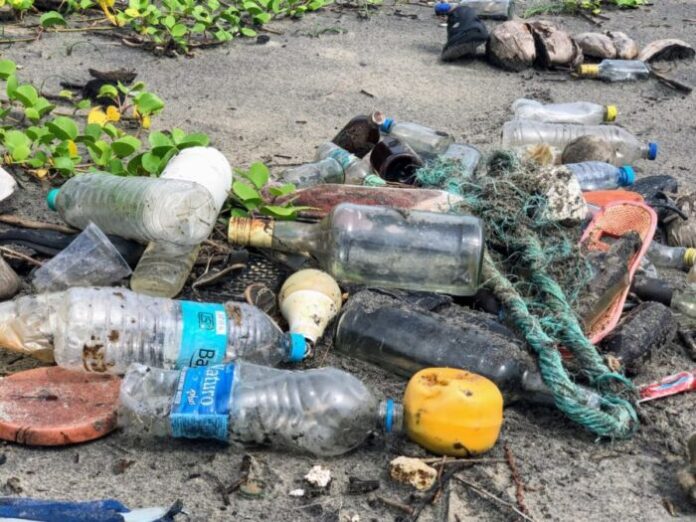
As plastic continues to invade the planet, more and more companies and scientists are working to find effective ways to recycle what has already been released into the environment. This is the case of a group of researchers from the University of Bath, in the United Kingdom, which has developed a way to break down plant-based plastics into their constituent elements, potentially allowing the products to be recycled indefinitely, without this involving a loss of plastic properties.
A real turning point in terms of recycling since one of the biggest problems, with the current recycling methods and tools, concerns the loss of some properties of the recycled plastic compared to the original one. For example, a plastic bottle cannot be continuously transformed into a new bottle but it is intended to be used to produce lower quality objects.
British researchers, however, have developed a new method to recycle these chemicals by converting plastic materials back into their constituent molecules, so that they can be used to produce material with the same properties as the original. The method, the results of which have been published in the journal ChemSusChem, uses lower temperatures and more environmentally friendly catalysts than those currently used.
To date, in fact, most of the plastic is recycled using mechanical methods, in which the material is reduced to granules which are then melted before being modeled into something new. In the casting process, the material changes its composition and loses quality, thus limiting the range of products in which recycled plastic can be used.
The method discovered, however, uses a ‘chemical recycling’ technique that reduces the plastic polymers in their original chemical blocks. The experimentation was carried out on PLA (polylactic acid), a plastic of vegetable origin, which had not yet been recycled and which is normally used in packaging for food, cutlery and disposable glasses. The team also started experimenting with a similar process for PET, which is mainly used for bottles.
First author of the paper, Dr Paul McKeown from the University of Bath, said: “PLA is being increasingly used as a sustainable alternative for single-use plastics. Whilst it’s biodegradable under industrial conditions, it doesn’t biodegrade with home composting, and isn’t currently recycled, so at the moment it commonly ends up contributing to the tonnes of plastic waste in landfill and oceans.
“There is no single solution to the problem of plastic waste – the approach has to be a combination of reducing, reusing and recycling. Our method of chemical recycling could allow carbon to be recycled indefinitely – creating a circular economy rather than digging more up from the ground in the form of fossil fuels, or releasing it into the atmosphere as a greenhouse gas.”
This new method could contribute to the creation of a circular economy that reduces the use of fossil fuels for the production of plastic and, consequently, decreases the release of greenhouse gases into the atmosphere. So far, the technology has only been demonstrated on a small scale, however researchers are working on expanding the system and producing more recycled plastics.



































